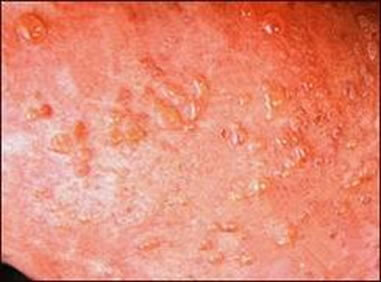Typhoid fever is an infectious disease caused by the bacteria Salmonella typhi. It is considered a serious disease, which presents constant fever, intestinal changes, increased viscera and, if left untreated, mental confusion can occur and lead to death.
The main form of contagion is through ingestion of contaminated water and food, which are spread around the world, but it occurs more often in countries where sanitation is poor or nonexistent. Food and water, in turn, are contaminated through contact with human urine or feces containing the bacteria. Direct contagion can occur by hand to mouth in situations of hands dirty with feces, urine, respiratory secretions, vomit or contaminated pus, but this form of contagion is quite rare.
Gastric acid is the first to react against salmonella, but the bacteria usually resist it. attack and goes to the small intestine, where it invades the intestinal wall and reaches the circulation blood. Once salmonella enters the bloodstream, symptoms begin to appear. Salmonella can enter any organ and multiply inside the defense cells. Salmonella normally invades the liver, spleen, bone marrow, gallbladder, and intestine.
Do not stop now... There's more after the advertising ;)
Contagion with salmonella is global, but, in Brazil, the greatest number of registered cases is concentrated in the North and Northeast, with Bahia and Amazonas being the states with the highest occurrence.
Signs and symptoms are: high fever, headache, malaise, lack of appetite, relative bradycardia, splenomegaly, pink spots on the trunk of the body, diarrhea and dry cough.
Typhoid fever can be more severe in people in poor health. Treatment is based on antibiotics and the body's rehydration processes. Depending on the patient's clinical condition, treatment can be done at home with oral medication.
THE MINISTRY OF HEALTH WARNS:
Self-medication can have unwanted and unanticipated effects, as the wrong medicine not only does not cure, it can worsen your health.
By Gabriela Cabral
Brazil School Team
Bacteria - Diseases and Health - Brazil School
Would you like to reference this text in a school or academic work? Look:
ARAGUAIA, Mariana. "Typhoid fever"; Brazil School. Available in: https://brasilescola.uol.com.br/doencas/febre-tifoide.htm. Accessed on June 27, 2021.
Biography

Discover the story of Florence Nightingale, considered the founder of modern nursing. A pioneer in the treatment of wounded in wars, Florence founded the School of Nursing at St. Thomas Hospital in 1860, and became a reference in public health and in the professionalization of nurses. Want to know more? Click!


